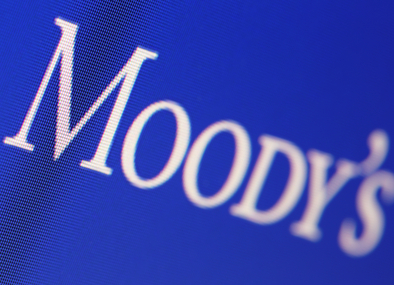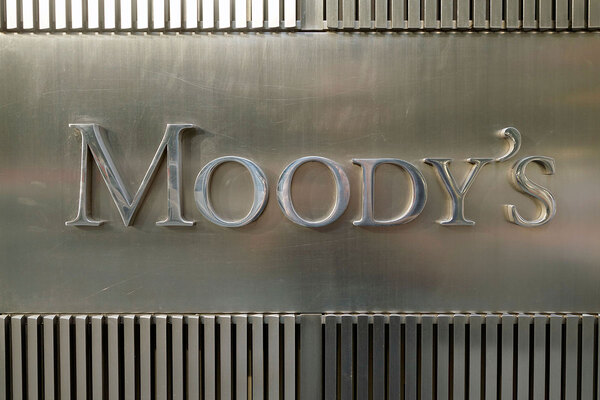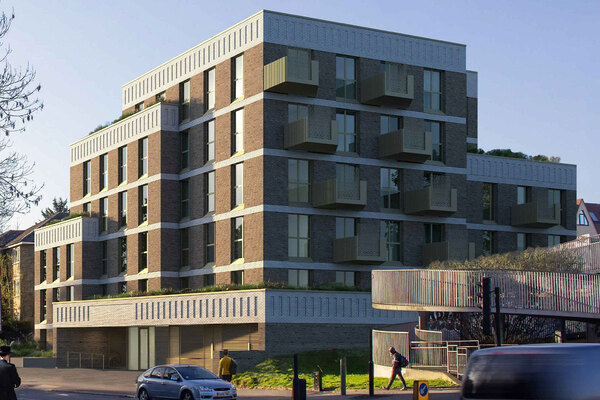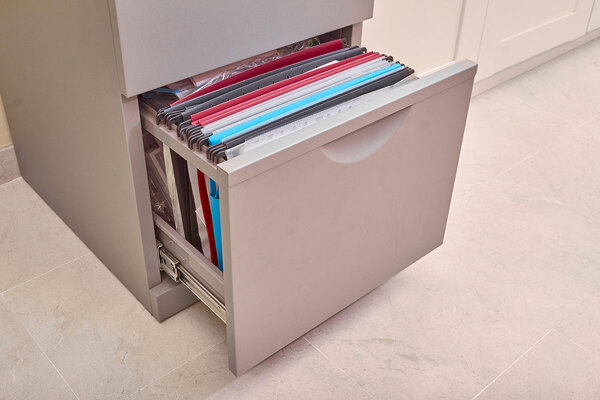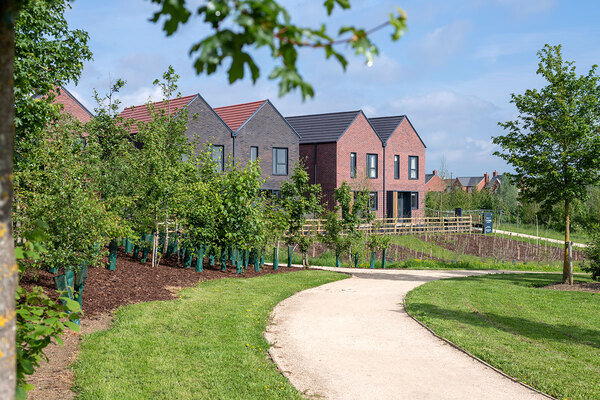You are viewing 1 of your 1 free articles
Six housing associations’ credit ratings downgraded as economic woes hit sector
A large rating agency has downgraded the credit ratings of six housing associations as the UK’s “high” levels of economic uncertainty hit the sector.
Moody’s downgrade of some of the country’s largest social landlords came in light of economic risks such as below-inflation rent caps, soaring inflation and increasing evidence of a housing market downturn.
The agency also maintained a negative outlook across its entire portfolio of rated housing associations and revised baseline credit assessments (BCAs) down for seven other housing associations, including two G15 landlords.
BCAs represent the rating agency’s view of the intrinsic credit strength of an organisation, disregarding the potential for any external support. Overall credit ratings consider all factors.
Social housing providers typically benefit from an uplift to their credit rating, based on the principle that the government would probably step in were they to experience credit difficulties. The BCA score discounts this.
Liverpool-based Riverside, one of the UK’s largest housing associations, had its credit rating downgraded from A2 to A3, alongside 60,000-home Sovereign in the South and 30,000-home Citizen in the West Midlands.
Moody’s said the downgrades of these three landlords reflect their “increased risk profile and weakened credit metrics, which are now more in line with A3-rated peers” (responses from the landlords are below).
This trio’s BCAs were downgraded as well. Riverside’s BCA was downgraded by two notches, to baa2 from a3, in recognition of its high debts, its operating margin being below 20% and “considerable expenditure” expected on fire and building safety work.
Citizen and Sovereign’s BCAs were downgraded to baa1 from a3. Both landlords are expected to face high costs on building safety work. Citizen also had operating margins below 25%, while Sovereign had high levels of risk with ambitious development programmes, Moody’s said.
The credit rating of 6,500-home Alliance in the West of England was downgraded from A1 to A2 “due to rising debt levels and lower interest coverage ratios”, while its BCA dropped from a2 to a3.
Two London landlords’ credit ratings also fell. Newlon Housing Trust, which manages 8,300 homes in the capital, dropped from A3 to Baa1, reflecting the “anticipated worsening” of its debt and interest cover.
The provider’s BCA was also downgraded to baa3 from baa2 because of anticipated high capital costs in the next three years, spending on building safety work and high debt exposure.
East London’s Poplar Harca, which has around 9,000 properties, had its credit rating downgraded to Baa2 from Baa1 and its BCA to ba1 from baa3. Moody’s said it was one of the landlords most exposed to a housing market downturn and was more vulnerable because of “weak operating margins and interest covers”.
The rating of Baa3 is Moody’s lowest ‘prime’ rating. Below this, organisations are considered “speculative” investments that “are subject to substantial credit risk”.
Seven housing associations retained their A3 credit ratings: Great Places, Guinness, L&Q, PA Housing, Saffron, Saxon Weald and Yorkshire Housing.
Moody’s said that while operating margins had weakened for all seven landlords, they continued to outperform or were in line with the median of A3-rated peers. “All continue to display solid liquidity coverage, with liquidity policies in line with the sector – typically covering more than 24 months of net cash needs,” the agency said.
However, all seven’s BCAs were downgraded to baa2 from baa1. According to Moody’s, this reflects the housing associations’ “high exposure and lower resilience to weakening economic conditions”.
G15 landlord L&Q is highly exposed to a contraction in house prices, according to Moody’s, because, like Poplar Harca, it expects more than 30% of turnover from market sales (including joint ventures) over the next three years.
Moody’s report also revealed “considerable variation” in the social landlords’ exposure to decarbonisation costs.
The agency said only 50%-65% of the stock of some landlords, including Poplar Harca, Saffron, Saxon Weald and Yorkshire, had an energy performance certificate (EPC) rating of C and above. This compares poorly with the median of 72% for rated housing associations, Moody’s said.
According to Moody’s, its ratings also reflect underlying sector strengths, including high demand for social housing, strong asset bases and effective oversight by the regulator.
The ratings incorporate a one to two notch uplift, based on Moody’s assessment of a strong likelihood of extraordinary support for the sector from the UK government.
Last October, Moody’s changed the outlook for the sector from stable to negative, warning that it faced a stormy period. S&P, another large rating agency, also gave notice that ratings could be hit.
In a report last year, S&P said the “widening gap” between rent levels and cost inflation in the current financial year poses “significant challenges” for social landlords.
Housing association responses
Cris McGuinness, chief financial officer at Riverside, said: “Although we are disappointed by the downgrade, this was expected and our board has been fully prepared for this outcome as we operate in an ever more challenging economic and regulatory environment. Although our baseline credit assessment has been reduced by two notches, our issuer and debt rating has only been downgraded by one notch, a result of Moody’s understanding the plans we have in place to manage the business through this volatile external environment.
“Our merger with One Housing has inevitably had an influence on the downgrade, specifically our higher-than-average planned spending on fire and building safety over the next five years combined with our ongoing commitment to care and support, together driving a lower operating margin.
“Investing in our homes to make them safe and secure for our customers is our priority. It’s important to highlight that we are at the beginning of a journey as a combined group that will deliver significant benefits for our customers and communities as we become better and stronger together.”
Ken Youngman, interim chief financial officer at Sovereign, said: “The fact that the economy continues to impact the housing sector should come as no surprise. Inflation, higher interest rates and labour shortages are all things we must contend with.
“Moody’s decision to downgrade six housing associations shows that today’s decision is not just about Sovereign – but also about the sector in general.
“As a leading housing association, we remain confident for the future and will continue to invest in our existing homes, provide much-needed new developments and manage the business to ensure we maintain sound finances.”
A Poplar Harca spokesperson said: “Poplar Harca’s board has critically appraised this risk to make sure we deliver our strategic plan.
“We remain committed to maintaining the financial resilience of Poplar Harca, and will continue to provide the highest-quality community-led services and deliver the regeneration we’ve promised to our residents.”
Andy Oldale, executive director of finance and governance at Yorkshire Housing, said: “We’re pleased that we’ve retained our overall A3 negative rating. We do however recognise the impact that the current economic climate is having on all housing associations, which is reflected in Moody’s decision to downgrade the baseline credit assessment for ourselves and 12 other associations. Overall we remain in a strong position with good liquidity, which will allow us to continue building new homes and delivering excellent services for our customers.”
Phil Elvy, executive director of finance at Great Places, said: “We are delighted that Moody’s has affirmed our A3 rating, demonstrating that we remain a financially strong and resilient organisation with strong governance and a sound business strategy that balances the needs of all our stakeholders.
“The current economic climate is challenging, and we recognise the heightened risks around the housing market, construction inflation, supply chain issues and exposure to shared ownership sales.”
Citizen declined to comment.
Sign up for our daily newsletter
Already have an account? Click here to manage your newsletters
